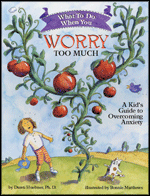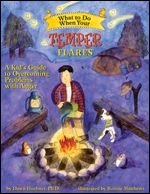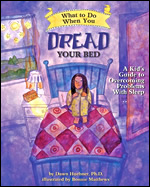Your child's emotional health is just as important as their physical health. We want to partner with you to help nurture this important part of their whole well being.
General Tips
- Eat a balanced diet including 4-5 servings of fruits/veggies, avoiding junk and limiting processed foods
- Aim for a goal of 60 minutes of physical activity every day
- Stay hydrated
- Limit screen time and excessive social media use
- If anxiety is present, try finding the root of the anxiety- explore possible areas such are family/home, friends, school, extracurricular activities, or over involvement.
- Ensure adequate sleep and good sleep hygiene such as consistent bedtime, preparing the mind for sleep by doing something relaxing in a darkened room until sleepy. Remove television and other electronics from the child's room as these are very alerting and have been shown to interfere with sleep.
- Engage your child in conversation for a mental health check in every so often. Having conversations about mental health on a regular basis will help them feel more comfortable talking with you if an issue arrives.
- Read our suicide prevention blog post
CHOA Strong4Life Emotional Wellness Website
Children's Healthcare of Atlanta has excellent resources reviewing topics such as stress, anxiety, depression, bullying, problem solving and more on their Strong4Life website.
Coping Skills
Developing healthy coping skills is a great tool to maintain emotional wellness. We highly recommend the following coping skills content:
https://www.strong4life.com/en/emotional-wellness/coping/simple-coping-skills-ideas-for-kids
The graphic below reviews some basic coping skills you might find helpful.
Workbooks
Common concerns children and parents face include worry, anger, obsessive thoughts, and difficulty sleeping. Dawn Huebner, Phd. has developed amazing books for children addressing these issues.
Some of the most commonly referred books by our providers are titled What to Do When You Worry Too Much: A Kid's Guide to Overcoming Anxiety and What to Do When Your Temper Flares: A Kid's Guide to Overcoming Problems with Anger. The intended age range for readers of most of her books are 6-12 years. She has one book designed for older children, geared toward ages 9-13 years Outsmarting Worry: An Older Kid's Guide to Managing Anxiety. For a list of all of her books click the following link: https://www.dawnhuebnerphd.com/books-by-dawn/



Thing we DO NOT recommend:
- ignoring their symptoms
- melatonin
- CBD oil
- other "self medicating"
Please make an appointment with your child's provider if you think your child could benefit from taking a medication for their mental health.
SEEK HELP
Call us if your child is experiencing:
- Excessive worry, anxiety, or fear
- Marked personality, sleep, or weight loss
- Having trouble performing normal day to day activities
- Unexpected and dramatic decline in academic performance
- Extreme mood swings
- Substance abuse
- Cutting or other self harm
In addition, the following statements are red flags and warrant your immediate attention and action by seeking professional help right away:
- "Nothing matters."
- "I wonder how many people would come to my funeral?"
- "Sometimes I wish I could just go to sleep and never wake up."
- "Everyone would be better off without me."
- "You won't have to worry about me much longer."
Call us IMMEDIATELY if your child is having suicidal thoughts. If we are not open, call the Georgia Crisis Line at 1-800-715-4225 or a local hospital. Call 911 if your child is actively attempting self-harm.
